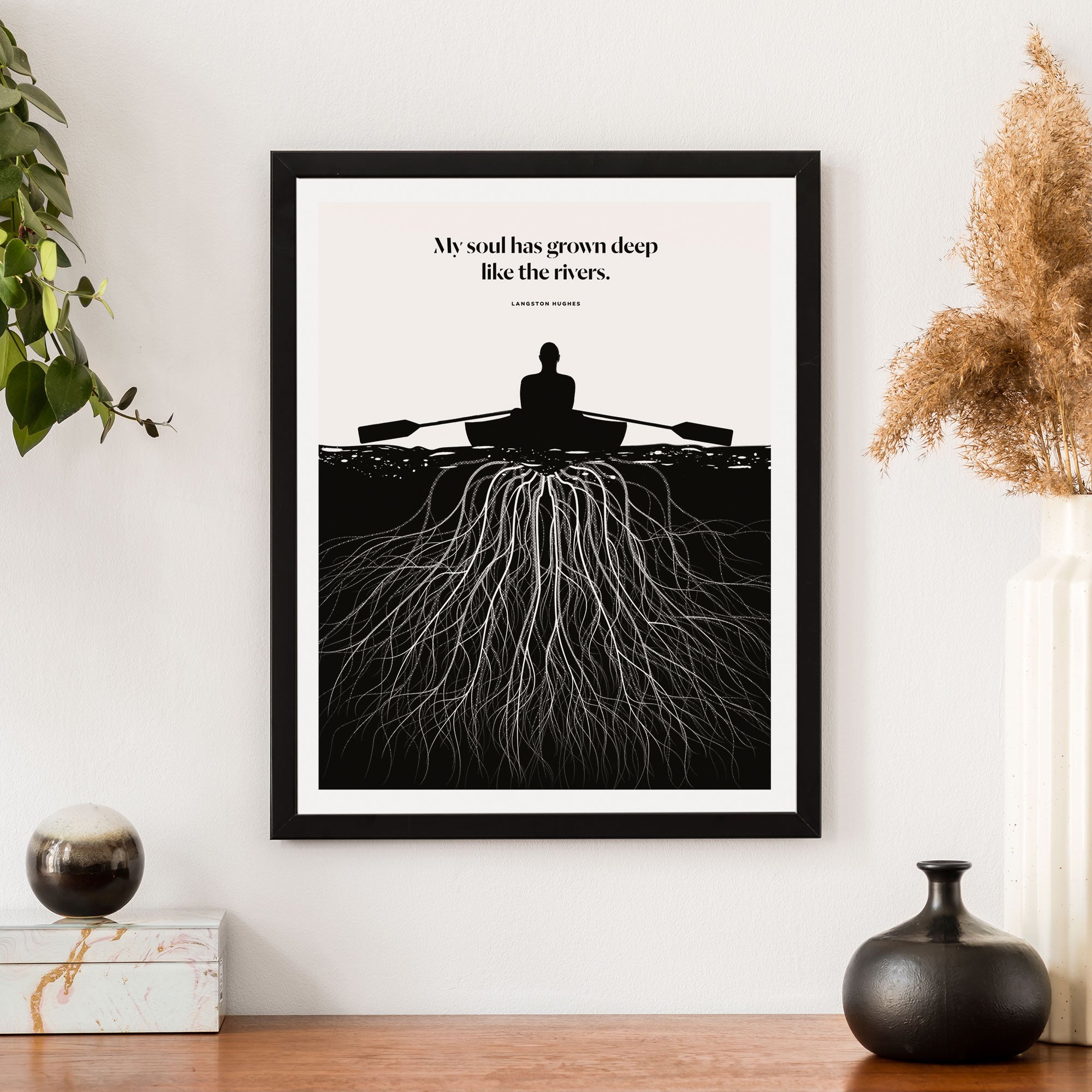


The next morning, the newspapers reported that Lindsay had discovered a prodigy among the kitchen help. While busing dishes at the Wardman Park Hotel, Hughes left a few sheets of verse for the perusal of a diner, poet Vachal Lindsay. Hughes returned to New York and published eleven poems in Locke's anthology, The New Negro (1925). After capturing dawn hours on the Rue Pigalle in "The Breath of a Rose," he welcomed the tutelage of Locke, who escorted him to the city's landmarks and the Piazza San Marco of Venice. In 1924, Hughes cooked and washed dishes at Le Grand Duc, a chi-chi cabaret in the fashionable Montmartre section of Paris. He reveled in the exotic fragrances and sights of the Canary Islands, Dakar, Timbuktu, and Lagos, source of his anti-European manifesto, "Liars." He became the only member of the Harlem Renaissance artists to sample the atmosphere of Nigeria and Angola. This was his first trip abroad, and he anchored his optimism on the support of Joel Spingarn and Jessie Fauset and letters from Countée Cullen and Alain Locke. Malone on a transatlantic haul to west Africa. Hughes left college after two semesters and worked as a truck farm laborer, waiter, and valet before accepting a berth as seaman aboard the S. On his return north in 1921, he published it in Crisis. On the dismal train ride to Mexico, he displayed his literary promise with "The Negro Speaks of Rivers," which he wrote while crossing the Mississippi River near St. After graduation, he lived in Mexico for fifteen months with his father, from whom he wheedled tuition to Columbia University. Hughes attended Central High School in Cleveland. He served as class poet of his elementary school. When his parents divorced in 1913 and his mother married a white man, he lived in her ramshackle apartment in Lincoln, Illinois. He grew up in Lawrence, Kansas, on a literary diet of the Bible and Crisis, the NAACP magazine. Hughes was born on February 1, 1902, in Joplin, Missouri. Hughes was an inveterate collector of bits of Afro-Americana gleaned from chance encounters, sonorous sermons, jingles and advertisements, and snatches of jazz tunes. He attempted most literary venues, including short and long fiction, songs, history, humor, journalism, travelogue, juvenile literature, stage comedy, and screenplay.

#Soul gone home by langston hughes professional
The rare professional poet and playwright who earned a living from publication, at the height of the Harlem Renaissance, he became America's first internationally known black writer. Langston Hughes was a prolific writer who used his literary influence to bring the plight of blacks to the attention of society.The master poet of the Harlem Renaissance and one of America's most translated authors, James Mercer Langston Hughes captured the blues stanza and the dialect music of mainstream black America. The “Men in the white coats” (Hughes, 1273) who carry Ronnie’s body away are yet another figurative expression of a white society claiming another black victim. Even the milk and eggs mentioned as lacking in his diet are a subtle reference to the white society that has stunted his growth as a black man. “He rolls his big white eyes” (Hughes, 1271) at his mother. Ronnie’s description is a “dark boy in a torn white shirt” (Hughes, 1271). Wealth of a spiritual or emotional nature is never mentioned.Īs Kolin and Curley point out in “Hughes Soul Gone Home”, color is also a reoccurring symbol throughout the play (1274). Wealth is only mentioned in a monetary sense, “When I had money, ain’t I fed you?” (Hughes, 1271) and “you said you ain’t got no money for milk and eggs” (Hughes, 1272). The pennies on Ronnie’s eyes mentioned at the beginning and end of the play refer to an ancient custom and also to the poverty that can blind one in a capitalist world.


 0 kommentar(er)
0 kommentar(er)
